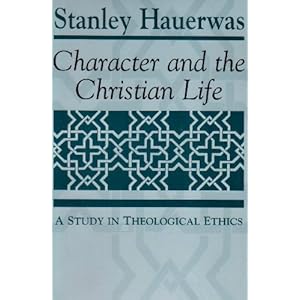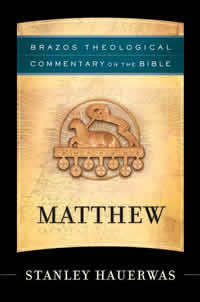När hemska saker händer, speciellt åt dem som är svaga och oskyldiga, som min lilla pojke med hjärntumör, händer det ofta att människor säger ”livet är orättvist”. Om man skulle fråga vad de menar skulle de kanske säga att de helt enkelt inte tycker om att sådana saker händer, men det är ändå intressant att man uttrycker sitt misstycke i termer av rättvisa/orättvisa.
Nu är ju rättvisa något vi vanligen i första hand väntar oss av andra människor och av samhället. Så vad är det vi gör när vi använder ordet om livet som helhet, verkligheten som sådan? Jo, det vi gör är att skapa teologi. När vi uttalar oss om verkligheten som helhet, om hur den är eller borde vara, då bedriver vi teologi. Teologer är vi allihopa.
Härmed inte sagt att en sådan här teologi är en kristen teologi. Kristen teologi har mycket att säga om rättvisa, men den hävdar inte att livet är rättvist. Inte ens att Gud är det. I Bibeln är rättvisa framför allt något som de med makt skall bekymra sig om, och något som borde bekymra de som har makt. Enligt Bibeln är det Guds vilja att vi skall vara rättvisa mot varandra. Ja, egentligen är kravet ännu strängare, vi förväntas älska varandra.
För kristen teologi har det ständigt varit en stor frestelse att försöka ge svar på frågan om varför de oskyldiga måste lida. Men kristendomens ”svar” på lidandet är just detta att vi inte kan svara på den frågan, vår okunskap är en del av lidandet självt.
Däremot har kristen tradition många råd om hur vi skall hantera lidandet. Här är rättvisa relevant – vi kan göra vad vi kan för att den som lider och fått lida inte behöver lida mera i onödan. Det är en innebörd i den kristna förståelsen av kärlek. Därför är vård av sjuka en så central kristen angelägenhet att när samhället tog över ansvaret för vård av sjuka från kyrkan innebar det en kris för kyrkan som den kanske aldrig har hämtat sig från.
Men kristendomen har också något att säga om hur vi bör möta vårt eget lidande. Kristendomens råd är svårt, hårt och nästan omöjligt att ge någon annan. Vi måste försöka se lidandet som en gåva. Det handlar inte om att fly från att lidandet verkligen är ont eller orsakas av något ont. Det handlar om att vi måste försöka använda den frihet vi har som människor att själva bestämma hur vi ser på vår verklighet.
Vi kan se på vårt lidande som orättvisa. Då stänger vi oss för möjligheten att se någon mening i det. Eller vi kan, ursinnigt och envist, försöka tro att det lidande vi upplever kan komma att bli del av en helhet som till sist är något vackert, sant och värdefullt. Sällan kan vi se detta när vi lider. Det är då vi behöver hålla fast vid tron på att vi en dag kanske kan se annorlunda.
Det är lätt att med logiska argument och rationellt tänkande hitta problem i denna syn. Och även detta kan bli groteskt om vi använder det som en förklaring till det onda. Men som väg igenom lidandet är detta en välbeprövad väg.
Problemet är att det inte går att bara bestämma sig för att tänka så här. Och man kan inte lära någon annan att tänka så på ett ögonblick.
Det avgörande är alltså att förbereda sig. Att vänja sig med att se var dag som en gåva, båda de goda dagarna och de mindre goda. Då kanske man har något att falla tillbaka på när de onda dagarna kommer.
För de kommer. Livet är inte rättvist eller orättvist. Det är som det är.
Publicerat i Vasabladet 1.11.2011

 Hauerwas considers himself to be first and foremost an essay writer, and although
Hauerwas considers himself to be first and foremost an essay writer, and although  This book is probably among the ones that are more often mentioned, no doubt because it is rather clearly focused on the theme of Virtues. Thus it is often cited as the book containing Hauerwas’s understanding of the virtues, which is obviously a bit problematic since this book is a collaboration between two writers, and parts of it is more Pinches than Hauerwas – though I would not want to try to formulate how they differ.
This book is probably among the ones that are more often mentioned, no doubt because it is rather clearly focused on the theme of Virtues. Thus it is often cited as the book containing Hauerwas’s understanding of the virtues, which is obviously a bit problematic since this book is a collaboration between two writers, and parts of it is more Pinches than Hauerwas – though I would not want to try to formulate how they differ. Hauerwas has had a very specific interest in the mentally disabled for a long time, and it is not surprising that he would run in to the L’Arche movement sooner or later. This book is the product of the first meeting between him and Vanier and consist of two chapters each written by them, were they discuss the theological background, meaning and challenge of L’Arche.
Hauerwas has had a very specific interest in the mentally disabled for a long time, and it is not surprising that he would run in to the L’Arche movement sooner or later. This book is the product of the first meeting between him and Vanier and consist of two chapters each written by them, were they discuss the theological background, meaning and challenge of L’Arche. This is Hauerwas doctoral thesis and frankly, I’d say it is mostly of interest to scholars studying the development of Hauerwas’s thinking. For those that fit that description, the foreword to the second edition is especially interesting. Also, it includes the only in depth treatment by Hauerwas of Bultmann, and perhaps his most sustained engagement with Thomas of Aquinas; and the most thorough reading of Barth before With the Grain of the Universe. Here Hauerwas is in fact quite critical of Barth.
This is Hauerwas doctoral thesis and frankly, I’d say it is mostly of interest to scholars studying the development of Hauerwas’s thinking. For those that fit that description, the foreword to the second edition is especially interesting. Also, it includes the only in depth treatment by Hauerwas of Bultmann, and perhaps his most sustained engagement with Thomas of Aquinas; and the most thorough reading of Barth before With the Grain of the Universe. Here Hauerwas is in fact quite critical of Barth. This book is interesting for a few reasons.
This book is interesting for a few reasons.



